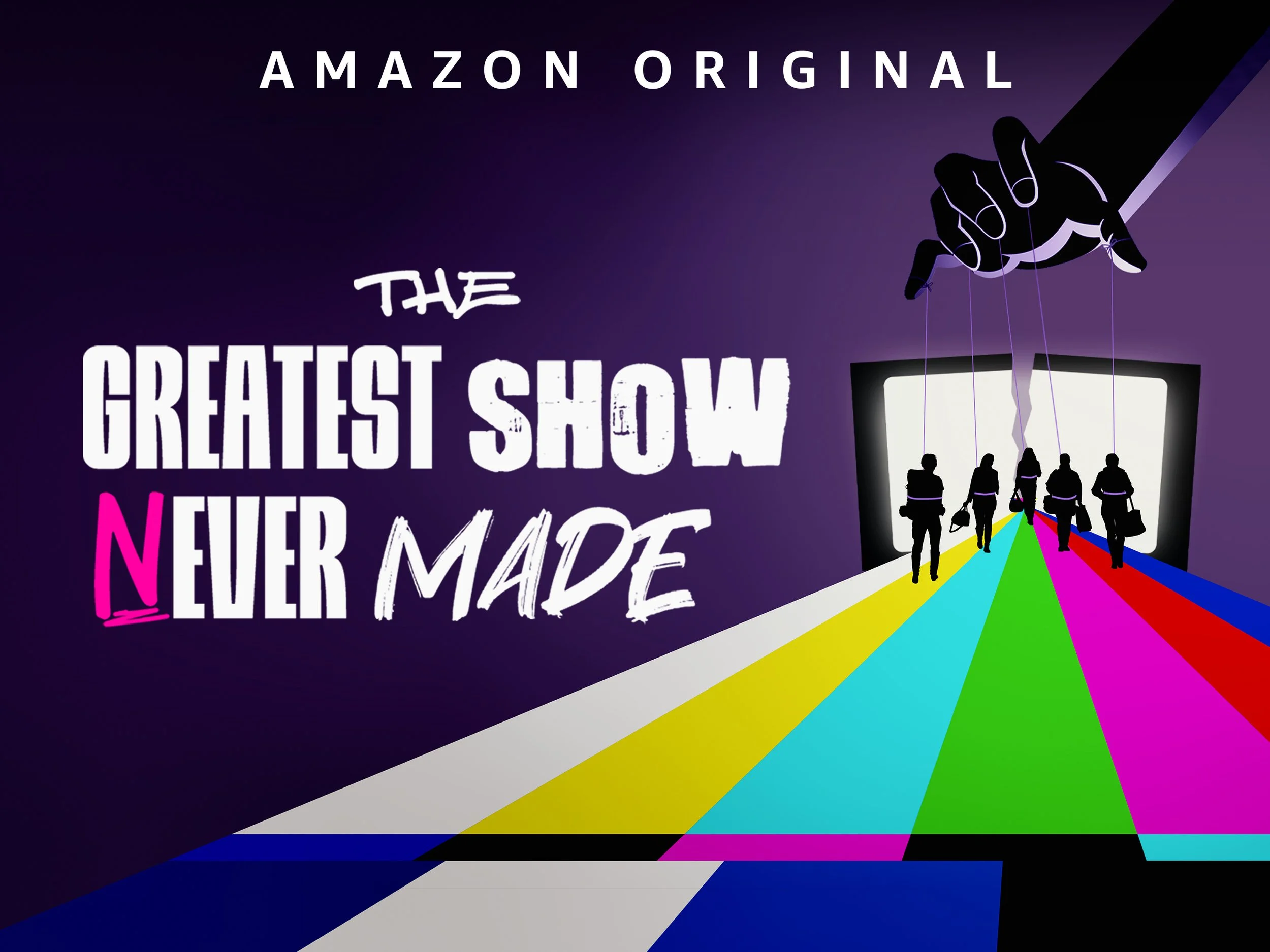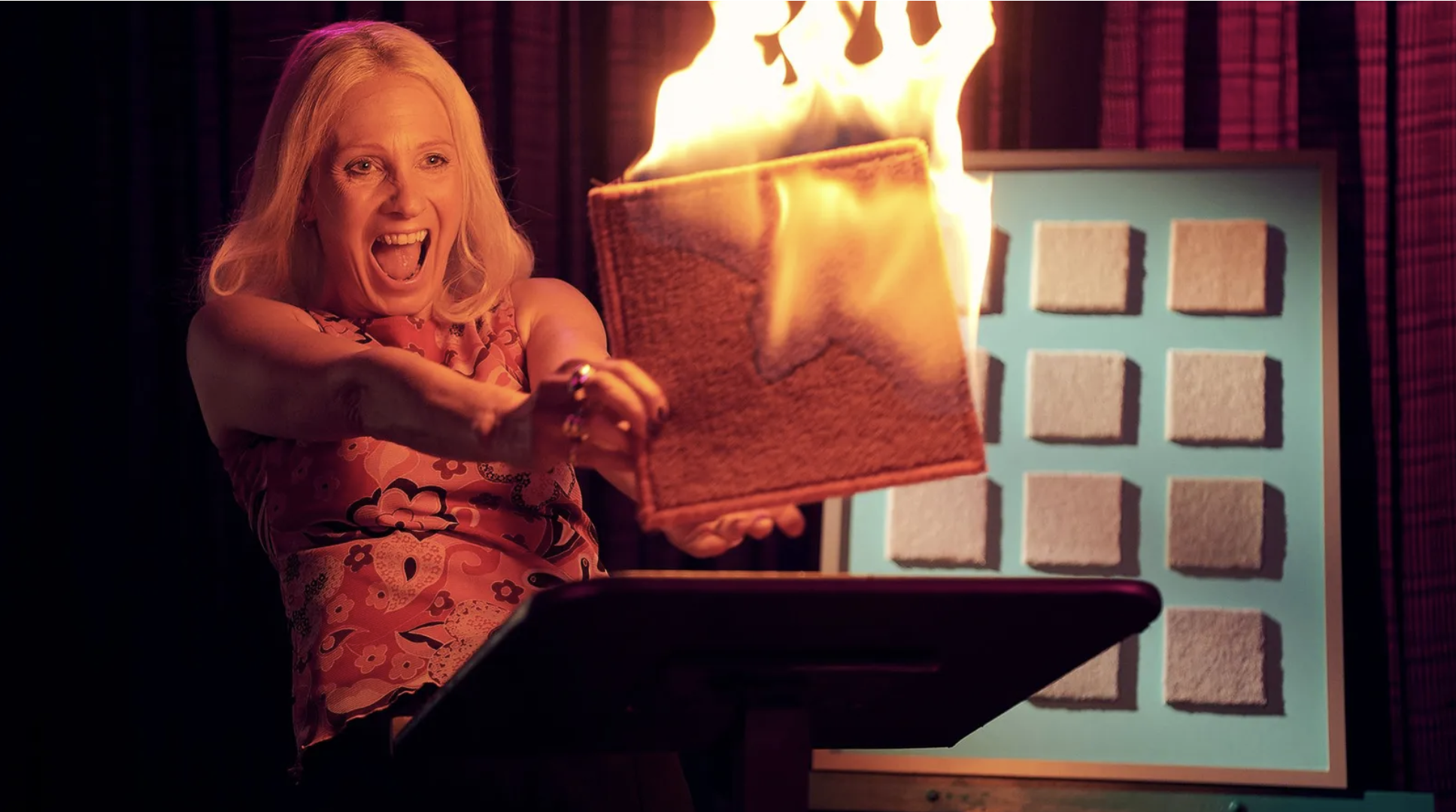
ASHLEY FRANCIS-ROY UNRAVELS THE OUTLANDISH STORY OF NIKITA RUSSIAN IN ‘THE GREATEST SHOW NEVER MADE’
For the latest addition of Lemonade Spotlight we caught up with BAFTA Breakthrough and RTS Award Winning director Ashley Francis-Roy at Missing Link Films. We wanted to discuss Ashley’s latest work ‘The Greatest Show Never Made’ a three part documentary series that dives into the absurdity of reality television, which is now available to stream on Amazon Prime.
Cast your minds way back to the Summer of 2002, Big Brother is king of the airwaves and everybody wants to be famous, along comes Nikita Russian Productions with a new reality TV series, thousands applied. People traveled far and wide for a shot at fame and the £100,000 prize. Eventually thirty “lucky” contestants were chosen and given their contracts: accommodation, food, and leisure money would be provided, all they had to do is be filmed for a year whilst they complete a secret task. They quit their jobs, end relationships, and give up their homes for this chance of a lifetime…But within hours of arriving in London their dreams begin to unravel, leaving thirty cashless and now homeless young people stranded in London on a wing and a prayer.
The story is an outlandish odyssey of trickery and deception but at the core Ashley finds something unique, he finds humanity and gentleness behind the circus.
Ashley, can you tell us what drew you to this subject matter as a filmmaker?
I’d never heard of this story before and was totally gobsmacked when I found out about it. It’s one of those jaw-dropping, crazy tales that you just can’t quite believe is real. It’s full of joy, fun, and warmth, but also has a really intriguing mystery at its heart.
I was also really drawn to the period - I was 10 in 2002 so don’t remember it that well, but absolutely loved looking back at all the archives from that time. It wasn’t that long ago but it can feel like a totally different world, the music, fashion, tv was wonderful. Some of it feels quite strange and bizarre now, some of it feels a bit weird and uncomfortable, even nasty - it was a really fascinating time period to try and explore.
One of the big things about this story that really excited me was that it was really about the dreams we all have as young people. I looked at this story and saw a bunch of young people who were really trying to change their lives and follow their dreams; this is so inspiring and relatable to me. I was so curious to see how things had played out for them since this had happened and what their relationship now was with their younger selves.
Could you tell us a little bit about the processes of research you went through to bring this piece together?
We spent a lot of time explaining what we wanted to do to the contributors in the documentary. All of them were initially very apprehensive about taking part - some of them ignored us for ages! They’d already had a pretty devastating experience with telly and so naturally were suspicious about this. We were persistent but took our time in building a relationship with each of them and being really clear and direct about what we wanted to do and how the process could work.
I wanted to work really hard to help the audience connect with our contributors, to be on their side and understand their motives. We didn’t want people to think they were the ‘stupid wannabes’ who fell for a scam. So we put a lot of thought into how we would set them up, and contextualize Reality TV - so that the audience understood this was really the first time that a normal person had an opportunity to change their lives, make money, and have an adventure.
It had been 20 years since any of them had really spoken about what had happened in any detail and so I was really looking for powerful and original ways to help them connect with the story. Quite early on I had the idea to reproduce a set of the flat they all stayed in in a studio. It was quite an ambitious undertaking, but I knew it would be an amazing way for them to interact with this story. I spent a lot of time working with Production Designer Lauren Taylor on the design of this set. We didn’t tell any of the contributors we were doing it - they knew a big surprise was coming, but had no idea it was this - when they all walked onto the set for the first time it was overwhelming, like literally taking a step back in time. It was a powerful way for them to reconnect with the emotions and memories around this story.
How collaborative was Nik (N Quentin Wolf) during the making of the documentary?
This was a really challenging thing for Nick to be involved in. What happened had really huge implications for him - he talks about being demonised, feeling worried for his safety, going into a really dark period of depression, guilt, and struggling with addiction. It was around 10 years before he properly started building his life back together to a more stable, happy place. So when we came asking to talk about the whole thing again - I don’t think he was that thrilled. But we spent a lot of time with him trying to explain what we wanted to do - that we didn’t see him as some evil scammer, but that it felt like he was really trying to make something great happen and that he got pretty close to achieving it. In this series we just wanted to try and understand some of that from his point of view and in the process provide a bit of closure for everyone involved. This involved going over some difficult stuff for Nick - so it wasn’t always easy for him - but he was certainly very collaborative and engaged in helping make the film. We spent a lot of time together discussing things we might talk about in the interview and how we could film things in a way he was comfortable with, and we structured our filming to try and help him give the best performance he could.
Do you think Nik really set out with good intentions?
I really do! There is no evidence that we’ve found that suggests a scam or anything else like that. Everything Nick did from holding auditions on the island, to trying to make the project work even when it was totally falling apart in front of him - suggest to me that he genuinely believed in his idea and was determined not to let it go. I think most of the contributors feel this too - some of them describe him as a fantasist or dreamer - someone with amazing creative energy, ideas, and ambition, but missing some of the realism needed to make things actually happen.
One thing that is striking about the documentary is the slightly surreal set design that gives off a cartoonish aesthetic. Could you explain to us why you went with this approach?
There are big parts of the story that we didn’t have any archive for and so we needed to do some kind of reenactment to bring these moments to life. When I first heard about this story - it all seemed so silly and fun; I really wanted watching this series to be an enjoyable experience and I wanted it to feel visually original and bold. Baz Luhrman’s film Strictly Ballroom was a big reference for the tone and style of the series - it’s bold, colourful, a bit silly, and full of warmth. Having actors playing out moments from this story in a realistic way just felt a bit boring and cold to me, but having the contributors play themselves in hyperreal, colourful, over-the-top scenes felt way more interesting, fun, and a better way of bringing these moments and the emotions underpinning them to life in a way that helped the audience connect with the contributors. It’s always a risk working with non-actors in this way, but I think we got way more interesting, emotional, performances here and the tone and set design really made sense with the madness of the story.
Despite the documentary focussing on the backdrop of the early 00s I still think the ideas and themes are just as relevant today. Fame is something a lot of ‘ordinary people’ desire without often thinking of the consequences, what was your biggest takeaway from working on this project?
Absolutely - I think people still have dreams to change their lives in the same way our contestants were looking to. People want to escape their 9-5 and do something exciting; people want the love, attention, and special feeling that comes from fame; people want money to improve their life and be able to enjoy it wholly. I think there are a lot more opportunities for people to get these things, but there are still a lot of people who dream without being able to make the jump. Despite how it all turned out for them, I hope that this story inspires people to follow their dreams!
I was really struck by how even 20 years after - what happened had really shaped the lives of the contributors. The humiliation, shame, demonisation, was still with them and had impacted them in ways that I don’t think even they were really aware of. It made me aware of my responsibility as a filmmaker to be as humane and compassionate as possible. The work we produce is still powerful and can really impact those who help produce it and watch it.
Ash is repped by Missing Link Films for commercials and the show is now available to stream on Amazon Prime.





